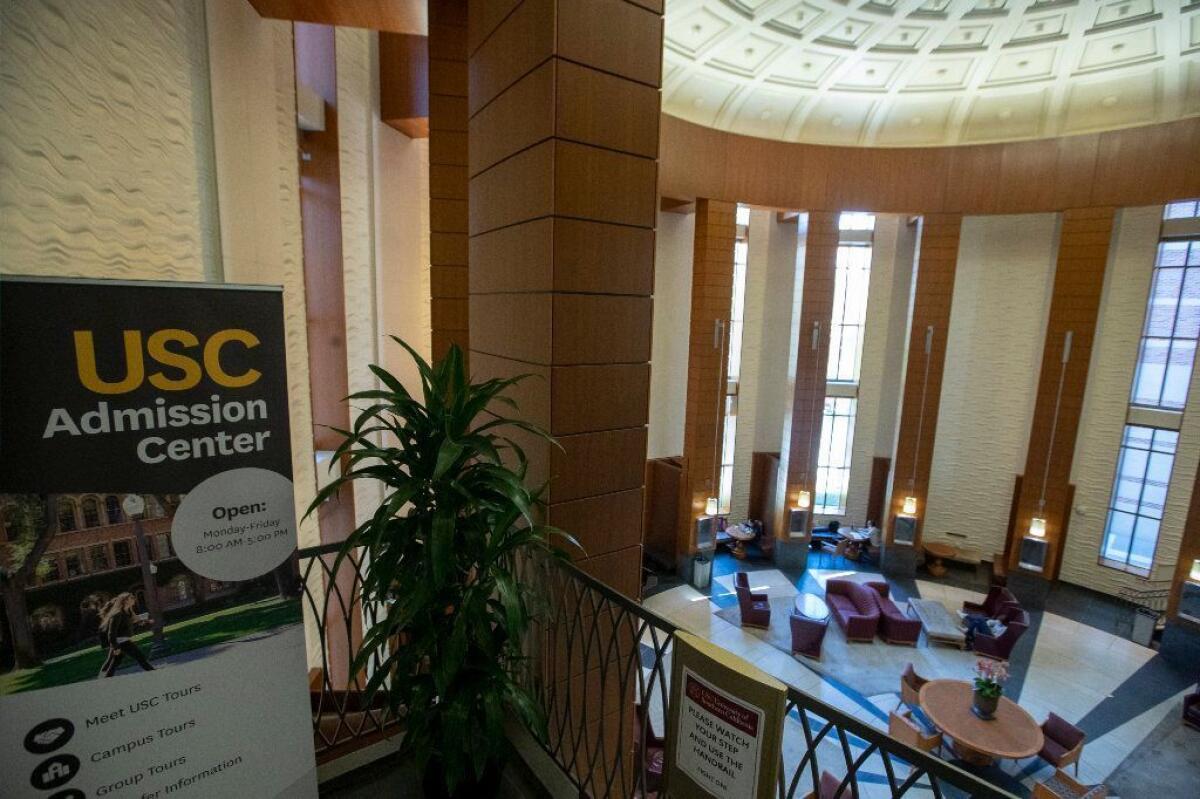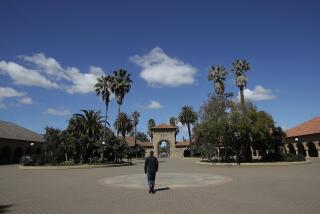Op-Ed: Operation Varsity Blues doesn’t end unfair college admissions policies

By now, we’re all familiar with the college admissions scandal investigated in Operation Varsity Blues by federal prosecutors. Over the course of the last several months, the investigators have exposed the actions of wealthy families across the world who paid large sums of money to get their children into selective American colleges fraudulently. The conspiracy received global attention — particularly because of the celebrities involved -- and prompted widespread disdain. Now, as some internal campus investigations come to a close and guilty pleas pile up, it’s easy to think that the legal process has addressed the problem.
Wrong.
As student body presidents at four universities immersed in the scandal — USC, UCLA, Stanford and Yale — we know that this illegal scheme is only one example of the many ways in which money influences the admissions process.
Across the United States, many high school students from high-income families have the resources to attend elite private schools, take personalized SAT/ACT prep courses, go on resume-boosting travel programs, embark on cross-country college tours to “demonstrate interest,” and employ professional college counselors to strengthen their application materials. Students from lower-income backgrounds often have no opportunity to engage in any of these activities.
Even one of the main mechanisms through which our public schools are funded — property taxes from their local neighborhoods — disadvantages students from low-income areas. High school students at underfunded public schools do not receive the same access to high-quality college prep resources as do their peers at public and private schools in wealthier ZIP codes — resources that are necessary to navigate the increasingly daunting landscape of college admissions.
As students at selective universities, we acknowledge the many ways in which we have personally benefited from this system of privilege. Many of us come from well-resourced parts of the country and were surrounded by people familiar with the college admissions process. We would not be where we are today without certain opportunities provided to us that other students could not afford, and we want to make sure that this significant injustice is not lost in the sensational headlines about Operation Varsity Blues.
The real scandal is about the millions of kids who will never have an equitable chance in an extremely complex, competitive and costly process.
The college admissions scandal is not confined to a handful of privileged families and institutions. It is embedded in the fabric of the U.S. education system. In a 2017 article, “The Aristocracy That Let Me In,” Andrew Granato, a Stanford student, reflected on the ways in which the U.S. has developed a modern-day aristocracy based on the myth of a meritocratic education system. Instead of passing down social status through inherited titles or landholdings, today’s elites are able to provide their children with special resources to prepare them for admission into selective universities, thereby ensuring that they, too, will enter into America’s top economic tier.
Still, much can be done within the existing system to mitigate the inequities that result from this social hierarchy. The University of Chicago and a number of other colleges have eliminated SAT/ACT requirements on their applications, a movement that we urge our own universities to join. Similar calls have been made to reevaluate legacy admissions, a process that gives an unfair advantage to educated and often wealthier families. In addition, America’s most selective universities need to engage in more targeted outreach to lower- and middle-income students who are severely underrepresented on their campuses.
Making our education system a true meritocracy will also require fundamental political and cultural changes outside of individual universities. The way we finance public school districts has to change — using property taxes only serves to reinforce geographic, racial and socioeconomic disparities in education quality. These disparities affect students’ chances of success before they reach middle school, much less college.
Our school systems need to address the biased structures and practices that exist in their classrooms, like disciplinary practices that target students of color. And any conversation about school choice needs to take into account whether a particular program combats or intensifies socioeconomic stratification.
Exposing the people involved in the admissions scandal has given the public a sense of how readily the system can be manipulated by wealth. But the reality is that justice won’t be served simply by holding some headline-making families accountable. That will only happen once the larger, deeply rooted institutional barriers to higher education are acknowledged and removed so that students, regardless of the status and wealth of their parents, have truly equitable opportunities for admission into the university of their choice. Dismantling these systemic barriers will require universities and the rest of the education system to work to end the inequities they create and promote -- ones that don’t usually make global headlines.
Robert Blake Watson is president of the Undergraduate Students Assn. Council at UCLA, Trenton Stone is president of the Undergraduate Student Government at USC, Erica Scott is president of the Associated Students of Stanford University and Kahlil Greene is president of the Yale College Council.
More to Read
A cure for the common opinion
Get thought-provoking perspectives with our weekly newsletter.
You may occasionally receive promotional content from the Los Angeles Times.










